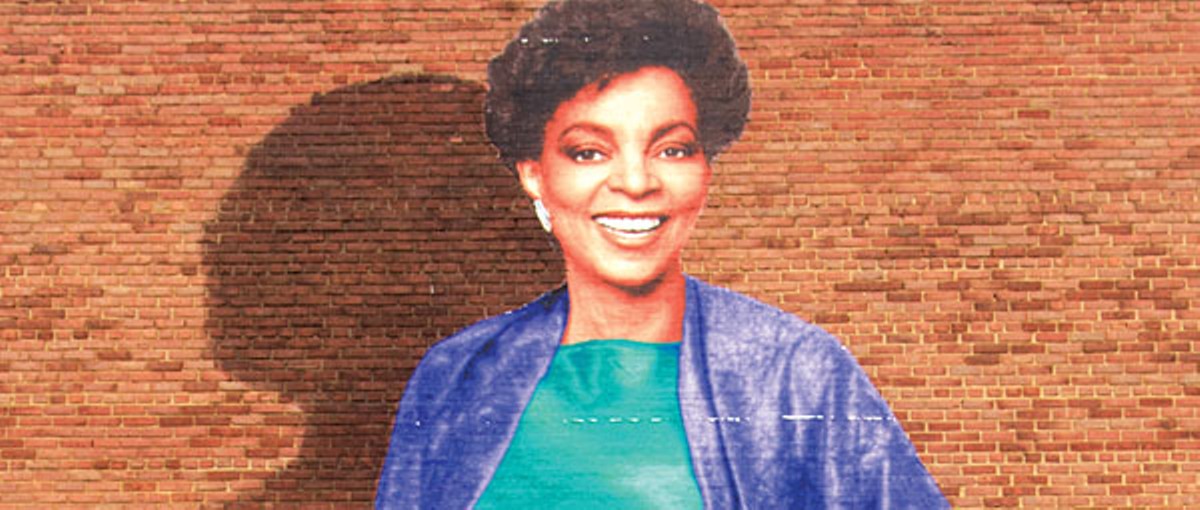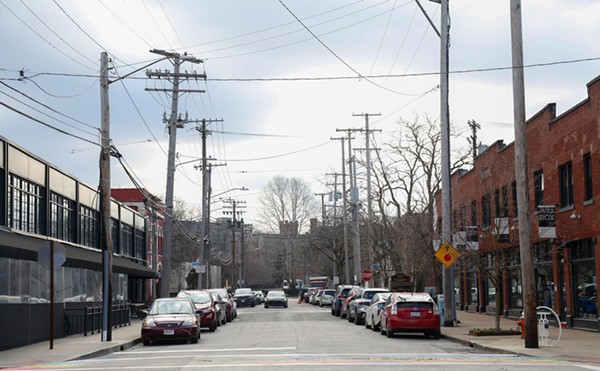The history of Karamu House is the stuff of legends. In 1915 Russell and Rowena Jelliffe took their newly minted Oberlin College diplomas and launched a settlement house that welcomed Cleveland's African American migrants. The organization endured a century and gained vaunted status as the nation's oldest African-American cultural institution. It's a glorious and celebrated past.
Karamu's present, however, is a muddled tale of fiscal and administrative woes and its future is just as unclear. Just six months after coming onboard as CEO, Tony Sias closed the 70-year-old childcare center and laid off 15 employees. He also suspended the afterschool program. But Sias' most surprising move was firing Terrence Spivey, who'd been the artistic director of Karamu Theater for more than 10 years.
The problem was money, plain and simple, Sias said.
"What I'm committed to is operating this institution as a sound business. And one of the things we have to get to is a sustainable financial model," he said.
In an interview with American Theater magazine, Sias said he'd found some "numbers that were breathtaking," when he reviewed the organization's books.
In fact, this latest situation is just another episode in Karamu's cycle of waxing and waning. Its longevity notwithstanding, the organization has often staggered toward financial collapse — only to pull back at the edge of the precipice.
Sias sidestepped when the Plain Dealer's theatre critic Andrea Simakis asked how much he'd saved by slashing staff. Karamu board president David Reynolds of Key Bank did not respond to the Scene's request for interviews about Karamu's finances and administration. But tax returns from 2013 and 2014 show how tenuous the organization's finances were.
Like most non-profits, Karamu relies on grants from public and private entities.
The Cleveland Foundation has long been a bulwark. From 2013 to the present, the foundation has sent more than $1 million Karamu's way. About $350,000 went for audience development and operating support; the rest went to artistic and other programs, said foundation spokesperson Susan Christopher.
As a United Way agency, Karamu House could count on roughly $120,000 annually. But the money dried up when United Way decided to focus on preventing poverty in 2014 and dropped Karamu from its list of recipients.
Meanwhile, Karamu was spending heavily on salaries. In 2013 and 2014, roughly 50 people worked at Karamu. That figured included full-time staffers, consultants and actors in the theater's productions.
In 2013 and 2014, payroll for full-time employees hovered around $750,000 — close to half the organization's total annual revenue of $1.6 million.
In 2014, the organization spent an additional $100,000 in "consultant's fees" for Patricia Egan, who served as interim executive director. Her salary was significantly higher than her controversial predecessor's, Gregory Ashe, who was making $58,000 when he left abruptly in 2012.
As incoming money dwindled, Karamu struggled. The organization's 2014 tax return reported Karamu started the fiscal year with $50,000 in cash reserves; it ended the year with $2,000. Investment income was a meager $2,273, and the organization only cleared about $58,000 from its 100th anniversary gala. Karamu has no endowment, and its building was only worth $610,000.
To help bridge the gap, the CEO and founder of Family Heritage Life Insurance Company of America stepped in to help Karamu out. Howard Lewis, a board member, loaned Karamu $150,000 for "operating expenses," according to the 2014 tax return. Lewis' office said he was traveling and could not be reached for comment.
Clearly, Karamu cannot live on its laurels. It has to evolve and transform and pivot.
Part of Sias' vision for that future includes renovating the Jelliffe Theater starting in the fall.
"We're able to get new seats, new lighting, to make sure the facility is ADA compliant. We're hoping to get a new screen. [The renovation] is going to give the theater the face-lift it needs for our patrons to be as comfortable as possible. "
While that's happening, the theater will stage productions throughout the region.
"These will be partnerships that will be able to introduce Karamu to some new constituents," he said. "We will be in different communities in the city. It's a great opportunity to reach new populations and potential patrons."
Karamu won't replace departed artistic director Terrence Spivey, but will rely on guest directors for its season instead. Meanwhile, Sias and the organization's staff will spend the summer creating programs that appeal to life-long learners and those who want to prepare for careers in the performing and fine arts.
"One of the strengths of Karamu, historically, was it was a training ground," Sias said, reciting the names of Karamu's most famous alumni: Ron O'Neal, Bill Cobb, and Ruby Dee, a mural of whom decorates the side of the building.
"There were droves of people who left this institution and were trained for the industry or for college," Sias said. "I think that's one of the important opportunities we have here ... to develop a skill-based, rigorous arts education and training program that is mastery based."
But all these plans will depend on the organization's bottom line. Karamu needs cash and throwing good money after bad isn't going to get Karamu on its feet, Sias insisted.
"We have to be strategic and look at every department ... each department has to get to a lean workforce."













